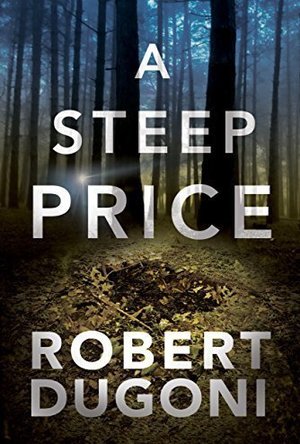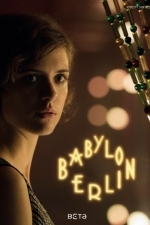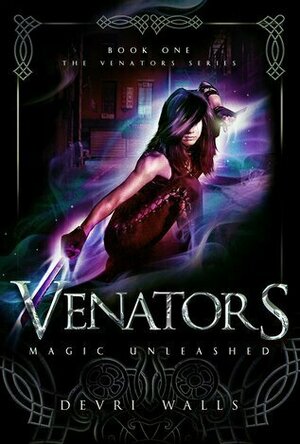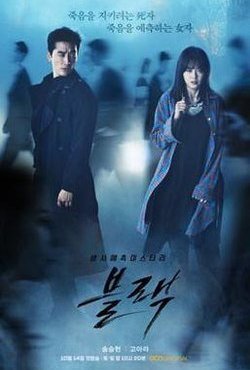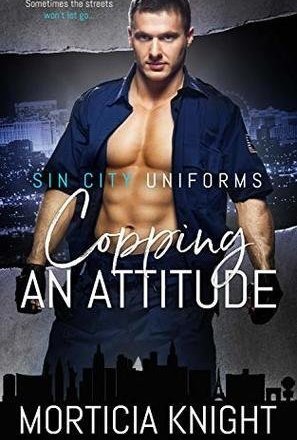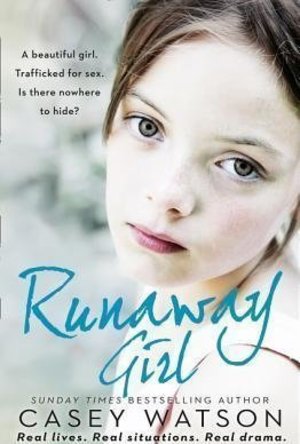Search
Lesley (60 KP) rated A Steep Price in Books
Aug 10, 2018
Tracy Crosswhite never disappoints!
I LOVE Tracy Crosswhite and this newest entry into the series was no exception. I laughed, I cried, I gasped. This is the review that I posted on my blog.
Moving right along. My beloved Tracy Crosswhite is back for book #6, A Steep Price. Every time Robert Dugoni releases a new book in this series, I feel like I get to see old friends again. Kins, Vic, Faz, Dan, Dan's DOGS!, and of course Tracy herself. I love this series because it feels authentic, manages to remain heartwarming in the face of grim subject matters, and really makes you care about the characters.
This time around, Tracy and Kins are investigating the death of a young Indian woman whose best friend has reported her missing after delivering some life-changing news. Unfortunately, when she is found murdered in a shallow grave in the park, it creates more questions than answers. As they delve deeper into her life, they find a lot of ambition that was hampered by her familys societal expectations, her grim determination to raise money for medical school at any cost despite her parents wishes to return home and accept an arranged marriage, and the seedy underworld of "Sugar Dating", which has enough loopholes to escape being classified as prostitution, despite being dangerous and borderline sex work. Tracy is feeling threatened and on edge due to their newest team member, another female who seems to be snooping in private files and isn't honest about the circumstances of an officer-involved shooting in the case that Vic and Faz are tackling currently. A young activist woman who spoke out against gangs and the drug trade in her underprivileged area gets shot and killed. The guys think it's connected to a local gang leader whose father they put in prison years earlier. The hotter the trail gets, the more in danger they are. Little Jimmy blames them for putting his dad away, and for his subsequent death in prison when a rival gang member stabbed him. Just as things are reaching a boiling point, Tracy and Kins figure out exactly who their killer is and they're hot on the trail. The book, like the others in the series, was a fun, fast-paced read with heart and a satisfying conclusion. I highly recommend starting this series!
Moving right along. My beloved Tracy Crosswhite is back for book #6, A Steep Price. Every time Robert Dugoni releases a new book in this series, I feel like I get to see old friends again. Kins, Vic, Faz, Dan, Dan's DOGS!, and of course Tracy herself. I love this series because it feels authentic, manages to remain heartwarming in the face of grim subject matters, and really makes you care about the characters.
This time around, Tracy and Kins are investigating the death of a young Indian woman whose best friend has reported her missing after delivering some life-changing news. Unfortunately, when she is found murdered in a shallow grave in the park, it creates more questions than answers. As they delve deeper into her life, they find a lot of ambition that was hampered by her familys societal expectations, her grim determination to raise money for medical school at any cost despite her parents wishes to return home and accept an arranged marriage, and the seedy underworld of "Sugar Dating", which has enough loopholes to escape being classified as prostitution, despite being dangerous and borderline sex work. Tracy is feeling threatened and on edge due to their newest team member, another female who seems to be snooping in private files and isn't honest about the circumstances of an officer-involved shooting in the case that Vic and Faz are tackling currently. A young activist woman who spoke out against gangs and the drug trade in her underprivileged area gets shot and killed. The guys think it's connected to a local gang leader whose father they put in prison years earlier. The hotter the trail gets, the more in danger they are. Little Jimmy blames them for putting his dad away, and for his subsequent death in prison when a rival gang member stabbed him. Just as things are reaching a boiling point, Tracy and Kins figure out exactly who their killer is and they're hot on the trail. The book, like the others in the series, was a fun, fast-paced read with heart and a satisfying conclusion. I highly recommend starting this series!
Kelly (279 KP) rated Babylon Berlin in TV
Dec 16, 2018
Realistic portal of post Great War Berlin (1 more)
Not your usual boy meets girl story
Gritty, thrilling, engaging... need I go on?!
I have not found a series in some while that I was so attached, as Babylon Berlin. I confess, I watched the subtitles version, as my knowledge of German is pretty poor, but even this did not detach from the enjoyment of the series.
Babylon Berlin follows Gereon Rath, a detective struggling to deal with the aftermath of the Great War. He is supported at times in his cases by Charlotte Ritter, an administrator by day who supplements her families income through prostitution at night. I found myself routing for both characters throughout both series 1 and 2 of Babylon Berlin, even knowing Charlottes less than legal background, which is never hidden from the viewer. There was/ is a clear attraction between the two characters, which frustratingly is never fulfilled. Both characters are played by incredibly strong actors and are fully believable throughout.
What grasped my attention from the start was the clear portrayal of poverty that people lived in post war Berlin. Despite knowing some of the issues in living standards, I was drawn to the accuracy of the portrayal, many other stories set in this era would seek to romanticise the period at the end of the Weimar’s golden era, however the stark reality of degradation, sickness, depression and crime is always at the forefront of the story, and the political complexity of the time is covered well. This makes the the series very dark at times.
I was also surprised by the lack of Nazi input there is across season 1 and 2. We see lots about involvement of communists within the political system in the series, but there are only a small handful of references to the brown shirts - this is in stark contrast to what we are taught in schools, where the impression is given that by the late 1920s, Nazi involment is promenant in German society. This actually challenged my thinking on the subject, allowing me to realise that this is still a period, where, although the Nazis are known, they are not yet that popular.
I cannot wait until season 3 is released in order to find out what is next in store for Gereon and Charlotte. This truly is German production at its best.
Babylon Berlin follows Gereon Rath, a detective struggling to deal with the aftermath of the Great War. He is supported at times in his cases by Charlotte Ritter, an administrator by day who supplements her families income through prostitution at night. I found myself routing for both characters throughout both series 1 and 2 of Babylon Berlin, even knowing Charlottes less than legal background, which is never hidden from the viewer. There was/ is a clear attraction between the two characters, which frustratingly is never fulfilled. Both characters are played by incredibly strong actors and are fully believable throughout.
What grasped my attention from the start was the clear portrayal of poverty that people lived in post war Berlin. Despite knowing some of the issues in living standards, I was drawn to the accuracy of the portrayal, many other stories set in this era would seek to romanticise the period at the end of the Weimar’s golden era, however the stark reality of degradation, sickness, depression and crime is always at the forefront of the story, and the political complexity of the time is covered well. This makes the the series very dark at times.
I was also surprised by the lack of Nazi input there is across season 1 and 2. We see lots about involvement of communists within the political system in the series, but there are only a small handful of references to the brown shirts - this is in stark contrast to what we are taught in schools, where the impression is given that by the late 1920s, Nazi involment is promenant in German society. This actually challenged my thinking on the subject, allowing me to realise that this is still a period, where, although the Nazis are known, they are not yet that popular.
I cannot wait until season 3 is released in order to find out what is next in store for Gereon and Charlotte. This truly is German production at its best.
Caffeinated Fae (464 KP) rated Magic Unleashed in Books
Mar 12, 2020
Fast Paced with some problems
TW: Sexual Assualt, Child Abuse, Abuse, mention of slavery, mention of forced prostitution, Victim blaming verbiage.
When I was approached about this book tour, I knew I needed to jump in. Magic Unleased is right up my alley, and I couldn't wait to get started. I ended up low on time, so I snagged the audiobook so that I could read it while reading a few other books in between. The narrator did a good job of portraying the characters, though, at times, his voice bordered on monotone.
Devri Walls sure knows how to write a vast world. The descriptions were great, and at times I felt like I was walking around with Rune & Grey. The setting itself was well done, and I liked to see the author's interpretations of the supernatural characters. My favorite was how the fae were portrayed. They weren't sweet, helpful things but tricksters. I just loved it.
The characters were also well done. I wanted to get to know more about Grey and Rune, and I liked seeing how they interacted with all of the characters. I enjoyed the side characters, as well. It seems like everyone, for the most part, was three dimensional. I will admit, I struggled with how young Grey & Rune acted though this is more of a me issue and not a book issue.
The one thing that didn't sit well with me was some of the victim-blaming verbiages in a specific scene. I felt that the character had every right to be upset, and I feel like she was gaslit because she didn't just accept that something "had" to happen. This scene soured me on the book, and I have to admit, I almost DNFd right then and there. After that scene, I started to notice just some of the ways that Rune was treated, and I hated how she was consistently berated instead of helped.
Though I did find some faults with this book, I ended up pushing through. In the end, I enjoyed the world that created. It was fun to see a more sinister side of faeries, and I enjoyed how fast-paced the plot was. I'm not sure that I will continue in the series, but I do understand why so many people have enjoyed it.
When I was approached about this book tour, I knew I needed to jump in. Magic Unleased is right up my alley, and I couldn't wait to get started. I ended up low on time, so I snagged the audiobook so that I could read it while reading a few other books in between. The narrator did a good job of portraying the characters, though, at times, his voice bordered on monotone.
Devri Walls sure knows how to write a vast world. The descriptions were great, and at times I felt like I was walking around with Rune & Grey. The setting itself was well done, and I liked to see the author's interpretations of the supernatural characters. My favorite was how the fae were portrayed. They weren't sweet, helpful things but tricksters. I just loved it.
The characters were also well done. I wanted to get to know more about Grey and Rune, and I liked seeing how they interacted with all of the characters. I enjoyed the side characters, as well. It seems like everyone, for the most part, was three dimensional. I will admit, I struggled with how young Grey & Rune acted though this is more of a me issue and not a book issue.
The one thing that didn't sit well with me was some of the victim-blaming verbiages in a specific scene. I felt that the character had every right to be upset, and I feel like she was gaslit because she didn't just accept that something "had" to happen. This scene soured me on the book, and I have to admit, I almost DNFd right then and there. After that scene, I started to notice just some of the ways that Rune was treated, and I hated how she was consistently berated instead of helped.
Though I did find some faults with this book, I ended up pushing through. In the end, I enjoyed the world that created. It was fun to see a more sinister side of faeries, and I enjoyed how fast-paced the plot was. I'm not sure that I will continue in the series, but I do understand why so many people have enjoyed it.
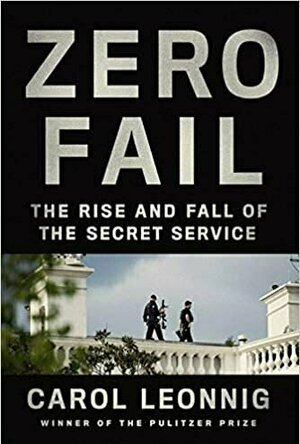
Zero Fail
Book
NEW YORK TIMES BESTSELLER - "This is one of those books that will go down as the seminal work--the...
Becca Major (96 KP) rated Black in TV
May 26, 2018
Premise (3 more)
Story
Mystery
Interesting world-building
THAT TERRIBLE ENDING (1 more)
Manipulative asshat hero
"Black" is just weird, okay?
"Black" is a very weird show because it is a steaming pile of questions. What Black is actually about is a detective who kinda befriends a psychic woman right before getting shot, and the Grim Reaper that possesses his dead body for his own purposes. Oh, and the psychic and the reaper develop feelings for each other, because of course they do.
The Characters
The main female character is Kang Ha-ram, an unfortunate woman who is able to see black smokey clouds on the backs of people who are about to die. Then, if she touches them, she can see exactly how they die. She lives alone, has trouble keeping a job, and has a terrible relationship with her family. Out of all the characters in this show, she is the most relatable. It’s also nice to see a headstrong female character who is also compassionate and damaged.
The main male character, however, is the Grim Reaper. His designated number is 444, but he chooses to call himself Black pretty early on (as an homage to "Meet Joe Black" though I can't say anything about it because I haven't actually seen the movie). He's... interesting. On one hand, I hate him. I hate that he manipulates Ha-ram. I hate that he lies to her about everything, and still has the audacity to jerk her around. I hate that he is prejudiced and egotistical. On the other hand, after he's been on Earth for a little while, he starts to pick up on the nuances of human interaction, so I can't hate him too much.
The Story
The story caught my attention early on. It is first and foremost a mystery and a cold-case mystery at that. Shortly after Black takes over the life of detective Han Mu-gang, he is roped into a case of teenage prostitution, murder, and political cover-ups. It's very good and keeps you guessing. Plus there's the romance between Ha-ram and Black to worry about. Unfortunately, the entire final episode is terrible. It literally feels like they threw darts at a board to figure out how to finish the show.
Final Thoughts
It's a good show that could use a much better finale. It has strong characters and a hella good story. The effects are good, and the acting is great. If you like mysteries or need a change of pace, then give it a shot.
[I wrote a little bit more about this on my personal blog, and I plan to do a few more posts about Black on it. Check it out if you are interested. https://rebecca-major.com/2018/05/24/black-a-spoiler-free-k-drama-review/]
The Characters
The main female character is Kang Ha-ram, an unfortunate woman who is able to see black smokey clouds on the backs of people who are about to die. Then, if she touches them, she can see exactly how they die. She lives alone, has trouble keeping a job, and has a terrible relationship with her family. Out of all the characters in this show, she is the most relatable. It’s also nice to see a headstrong female character who is also compassionate and damaged.
The main male character, however, is the Grim Reaper. His designated number is 444, but he chooses to call himself Black pretty early on (as an homage to "Meet Joe Black" though I can't say anything about it because I haven't actually seen the movie). He's... interesting. On one hand, I hate him. I hate that he manipulates Ha-ram. I hate that he lies to her about everything, and still has the audacity to jerk her around. I hate that he is prejudiced and egotistical. On the other hand, after he's been on Earth for a little while, he starts to pick up on the nuances of human interaction, so I can't hate him too much.
The Story
The story caught my attention early on. It is first and foremost a mystery and a cold-case mystery at that. Shortly after Black takes over the life of detective Han Mu-gang, he is roped into a case of teenage prostitution, murder, and political cover-ups. It's very good and keeps you guessing. Plus there's the romance between Ha-ram and Black to worry about. Unfortunately, the entire final episode is terrible. It literally feels like they threw darts at a board to figure out how to finish the show.
Final Thoughts
It's a good show that could use a much better finale. It has strong characters and a hella good story. The effects are good, and the acting is great. If you like mysteries or need a change of pace, then give it a shot.
[I wrote a little bit more about this on my personal blog, and I plan to do a few more posts about Black on it. Check it out if you are interested. https://rebecca-major.com/2018/05/24/black-a-spoiler-free-k-drama-review/]
SG
Shallow Graves: The Hunt for the New Bedford Highway Serial Killer
Book
Eleven women went missing over the spring and summer of 1988 in New Bedford, Massachusetts, an old...
Debbiereadsbook (1636 KP) rated Copping an Attitude (Sin City Uniforms #2) in Books
Jun 18, 2019
a far darker read than book one!
Independent reviewer for Archaeolibrarian, I was gifted my copy of this book.
This is book 2 in the Sin City Uniforms series, and while it is not really necessary to read book 1, All Fired Up, for you to follow this one, I think you should read it. If only because I said so! ?
Slade ran away from one kind of hell, straight into another one and has been surviving on the streets, being pimped out or facing the consequences. Till a beat cop spots something in Slade that makes him wish for things that can never really be. Parker knows he shouldn’t get close to the young man, but something about Slade pulls to him. And so, it seems, does Slade’s pimp. Can Parker really keep Slade safe; can he get him FREE, even?
I really enjoyed book one, but this one I LOVED!
It’s a far darker read, dealing with prostitution and drug/alcohol use, trafficking and basically the underbelly of Las Vegas in all its gory detail.
Parker has an immediate pull towards Slade, and he doesn’t know why. His eyes draw Parker in, and Parker cannot keep away. Finding Slade badly beaten sends Parker’s protectiveness into overdrive and neither man can fight the attraction that builds over time.
Slade is surviving, not living. He knows he will never get away from the streets, but a man can hope. And that’s what scares him the most: the fact that Parker gives him so much HOPE I hurts, down to his soul. Slade never really had that before, and Parker gives it to him.
It’s very emotional in places, drawing great wracking sobs out of me when Slade is so desolate and full of despair. It’s super sexy too! I was surprised how good Slade felt with Parker, so quickly. The fact he was CHOOSING to have sex with Parker was what threw him the most, since it had never, EVER happened before.
Trent and Shawn pop up, and I refer back to what I said about not NEEDING to read their book first. There is some recap here on their story, enough, I think, to give you the low down. It’s fabulous that they DO pop up, cos I love to catch up with previous characters in a series.
A certain someone is hard done by here, when Parker does what he really should have done a long time ago, but I’ve read the blurb for some other upcoming books in this series, and he does get his own (hopefully) happy every after.
And after reading all the blurbs, I’m so very hoping I can get my grubby little mitts on them all, I really am!
A far darker read, but I read it in one go, and could not put it down!
5 full and shiny stars
**same worded review will appear elsewhere**
This is book 2 in the Sin City Uniforms series, and while it is not really necessary to read book 1, All Fired Up, for you to follow this one, I think you should read it. If only because I said so! ?
Slade ran away from one kind of hell, straight into another one and has been surviving on the streets, being pimped out or facing the consequences. Till a beat cop spots something in Slade that makes him wish for things that can never really be. Parker knows he shouldn’t get close to the young man, but something about Slade pulls to him. And so, it seems, does Slade’s pimp. Can Parker really keep Slade safe; can he get him FREE, even?
I really enjoyed book one, but this one I LOVED!
It’s a far darker read, dealing with prostitution and drug/alcohol use, trafficking and basically the underbelly of Las Vegas in all its gory detail.
Parker has an immediate pull towards Slade, and he doesn’t know why. His eyes draw Parker in, and Parker cannot keep away. Finding Slade badly beaten sends Parker’s protectiveness into overdrive and neither man can fight the attraction that builds over time.
Slade is surviving, not living. He knows he will never get away from the streets, but a man can hope. And that’s what scares him the most: the fact that Parker gives him so much HOPE I hurts, down to his soul. Slade never really had that before, and Parker gives it to him.
It’s very emotional in places, drawing great wracking sobs out of me when Slade is so desolate and full of despair. It’s super sexy too! I was surprised how good Slade felt with Parker, so quickly. The fact he was CHOOSING to have sex with Parker was what threw him the most, since it had never, EVER happened before.
Trent and Shawn pop up, and I refer back to what I said about not NEEDING to read their book first. There is some recap here on their story, enough, I think, to give you the low down. It’s fabulous that they DO pop up, cos I love to catch up with previous characters in a series.
A certain someone is hard done by here, when Parker does what he really should have done a long time ago, but I’ve read the blurb for some other upcoming books in this series, and he does get his own (hopefully) happy every after.
And after reading all the blurbs, I’m so very hoping I can get my grubby little mitts on them all, I really am!
A far darker read, but I read it in one go, and could not put it down!
5 full and shiny stars
**same worded review will appear elsewhere**
Hazel (1853 KP) rated Runaway Girl: A beautiful girl. Trafficked for sex. Is there nowhere to hide? in Books
Dec 14, 2018
<i>I received this book for free through Goodreads First Reads.</i>
Casey Watson is a specialist foster carer who temporarily houses vulnerable children in emergency situations. Since working in this field for decades, she has been documenting her experiences in a series of books, each one focusing on a different child. Her thirteenth, and most recent book is <i>Runaway Girl</i>, aptly named about a (supposedly) fourteen-year-old girl, running away from several distressing situations.
Adrianna arrives on Casey’s doorstep with no possessions, no English and no passport. Apart from knowing she is Polish, Adrianna is a complete mystery to the Watson family and the services involved. With her sixth sense tingling, Casey is certain there is something important that Adrianna is hiding and, despite all her attempts, it is not until an emergency hospitalization that the frightened Polish girl starts telling the truth.
With a background of abuse, homelessness and sex trafficking, Adrianna’s story will open readers’ eyes to the shocking situations many foreign children find themselves. Unfortunately, Adrianna is only one out of 5,000 girls in the last decade and a half to be brought to England illegally and forced into prostitution.
Fortunately, Adrianna is lucky to have escaped and found a safe place to stay in the Watson household. Without Casey’s care and determination to provide a future for her, Adrianna would have remained one of the “hidden children” that arrive in England every year.
Casey writes in a novel-like format, describing Adrianna’s circumstances from a carer’s point of view. Slowly revealing the secrets of Adrianna’s past, Casey keeps the reader interested in the same way a fiction author would with a clever plot line. Emphasising the difficulties Adrianna has, not only coming to terms with the abuse she has faced, but also worrying about whether authorities will allow her to remain in England, Casey appeals to the readers’ emotions, making it clear that, although here illegally, trafficked children have every right to be protected and looked after by British authorities.
Although Casey writes under a pseudonym, and assumedly alters all names within the book, it is not certain how much of the storyline is true, or whether the situation has been accentuated in order to capture the reader’s attention. This, however, is not important – people will read this for entertainment, therefore the accuracy of the content is not as significant as the way in which it is told. <i>Runaway Girl</i>, whilst shocking, is engaging and easy to read, with a satisfying ending.
<i>Runaway Girl</i> is the only book I have read from Casey Watson, yet I can tell she is a worthy and successful author. Her stories – at least the blurbs – seem similar to other authors, such as Torey Hayden, who also write about their experiences helping vulnerable children. Casey Watson’s book need not be read in any particular order; therefore <i>Runaway Girl</i> is as good a place as any to begin.
Casey Watson is a specialist foster carer who temporarily houses vulnerable children in emergency situations. Since working in this field for decades, she has been documenting her experiences in a series of books, each one focusing on a different child. Her thirteenth, and most recent book is <i>Runaway Girl</i>, aptly named about a (supposedly) fourteen-year-old girl, running away from several distressing situations.
Adrianna arrives on Casey’s doorstep with no possessions, no English and no passport. Apart from knowing she is Polish, Adrianna is a complete mystery to the Watson family and the services involved. With her sixth sense tingling, Casey is certain there is something important that Adrianna is hiding and, despite all her attempts, it is not until an emergency hospitalization that the frightened Polish girl starts telling the truth.
With a background of abuse, homelessness and sex trafficking, Adrianna’s story will open readers’ eyes to the shocking situations many foreign children find themselves. Unfortunately, Adrianna is only one out of 5,000 girls in the last decade and a half to be brought to England illegally and forced into prostitution.
Fortunately, Adrianna is lucky to have escaped and found a safe place to stay in the Watson household. Without Casey’s care and determination to provide a future for her, Adrianna would have remained one of the “hidden children” that arrive in England every year.
Casey writes in a novel-like format, describing Adrianna’s circumstances from a carer’s point of view. Slowly revealing the secrets of Adrianna’s past, Casey keeps the reader interested in the same way a fiction author would with a clever plot line. Emphasising the difficulties Adrianna has, not only coming to terms with the abuse she has faced, but also worrying about whether authorities will allow her to remain in England, Casey appeals to the readers’ emotions, making it clear that, although here illegally, trafficked children have every right to be protected and looked after by British authorities.
Although Casey writes under a pseudonym, and assumedly alters all names within the book, it is not certain how much of the storyline is true, or whether the situation has been accentuated in order to capture the reader’s attention. This, however, is not important – people will read this for entertainment, therefore the accuracy of the content is not as significant as the way in which it is told. <i>Runaway Girl</i>, whilst shocking, is engaging and easy to read, with a satisfying ending.
<i>Runaway Girl</i> is the only book I have read from Casey Watson, yet I can tell she is a worthy and successful author. Her stories – at least the blurbs – seem similar to other authors, such as Torey Hayden, who also write about their experiences helping vulnerable children. Casey Watson’s book need not be read in any particular order; therefore <i>Runaway Girl</i> is as good a place as any to begin.
Gareth von Kallenbach (980 KP) rated Lincoln (2012) in Movies
Aug 7, 2019
The history of this country is steeped in mystery and intrigue, but it’s fuzzy on the details. We cling to heroes of the past because we are jaded by the present. Lincoln, a new film from Steven Spielberg, comes to us at a time when there seems to be even more political strife than usual. (Or perhaps that’s just me getting older and actually paying attention.) Either way, I think this movie’s arrival on the silver screen is very timely, given the recent election.
Daniel Day Lewis, a man revered for his choice of films and roles, as well as his ability to portray characters with so much emotion and conviction, has done it once again. As the title character for this film, Lewis portrays one of the U.S.A’s greatest leaders and pioneers in a way that few other men could. Surrounded by some of the best actors in Hollywood (including Tommy Lee Jones), this star-studded film has a laundry list of very recognizable faces from all corners of Hollywood. The red carpet was clearly rolled out for this film.
The story starts amid the death and destruction of the American Civil War, an event that is both a fixed point of the story and a constant backdrop. Seeing the fighting and killing made me wonder how gritty this movie would get, but as it turns out, they kept the level of gore pretty low.
The film goes on to set the stage for the final footsteps into the southern theater that was the Civil War. In tandem, it follows the highly controversial 13th amendment, which was barely passed at the time due to racism and the belief that one color of human should be slave to another color. The absurdity of this notion is highlighted, but it’s also familiar in the way it parallels issues we face today: legalizing pot, gay marriage, prostitution, the right to bear arms, etc. Perhaps our grandchildren will watch a film in the future about these struggles, and regard it as we do a film about the Civil War. As I sat and watched this movie, I was nearly in tears at the thought of how African-Americans were once regarded as lesser beings. Will our grandchildren cry at the ridiculousness of our beliefs?
The cinematography was amazingly crisp. Many of the characters are introduced in such a way that they have a grand entrance through the mystique created by camera angles. I have to truly applaud Spielberg for what might be his best film yet. The camera work was immensely effective, relying heavily on the contrast between shadow and light. Coupled with richly detailed sets, it made everything staggeringly realistic, and absolutely convincing.
I will say this for Lincoln: I haven’t been so moved and taken aback by a period film in my life. This is a must see for everyone.
The dialog is highly political, and sometimes goes along at quite a clip; be prepared to miss a few things the first time around. However, watching it a second time surely won’t be a sin. The humor alone merits a second viewing. There are many good laughs to be had.
Lincoln is a work of art.
Daniel Day Lewis, a man revered for his choice of films and roles, as well as his ability to portray characters with so much emotion and conviction, has done it once again. As the title character for this film, Lewis portrays one of the U.S.A’s greatest leaders and pioneers in a way that few other men could. Surrounded by some of the best actors in Hollywood (including Tommy Lee Jones), this star-studded film has a laundry list of very recognizable faces from all corners of Hollywood. The red carpet was clearly rolled out for this film.
The story starts amid the death and destruction of the American Civil War, an event that is both a fixed point of the story and a constant backdrop. Seeing the fighting and killing made me wonder how gritty this movie would get, but as it turns out, they kept the level of gore pretty low.
The film goes on to set the stage for the final footsteps into the southern theater that was the Civil War. In tandem, it follows the highly controversial 13th amendment, which was barely passed at the time due to racism and the belief that one color of human should be slave to another color. The absurdity of this notion is highlighted, but it’s also familiar in the way it parallels issues we face today: legalizing pot, gay marriage, prostitution, the right to bear arms, etc. Perhaps our grandchildren will watch a film in the future about these struggles, and regard it as we do a film about the Civil War. As I sat and watched this movie, I was nearly in tears at the thought of how African-Americans were once regarded as lesser beings. Will our grandchildren cry at the ridiculousness of our beliefs?
The cinematography was amazingly crisp. Many of the characters are introduced in such a way that they have a grand entrance through the mystique created by camera angles. I have to truly applaud Spielberg for what might be his best film yet. The camera work was immensely effective, relying heavily on the contrast between shadow and light. Coupled with richly detailed sets, it made everything staggeringly realistic, and absolutely convincing.
I will say this for Lincoln: I haven’t been so moved and taken aback by a period film in my life. This is a must see for everyone.
The dialog is highly political, and sometimes goes along at quite a clip; be prepared to miss a few things the first time around. However, watching it a second time surely won’t be a sin. The humor alone merits a second viewing. There are many good laughs to be had.
Lincoln is a work of art.
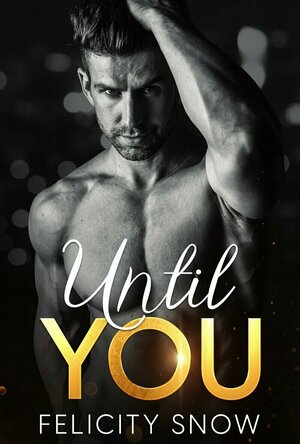
Until You
Book
Paul It feels like I’ve been drowning for five years, barely keeping my head above the water. I...
Contemporary MM Romance
